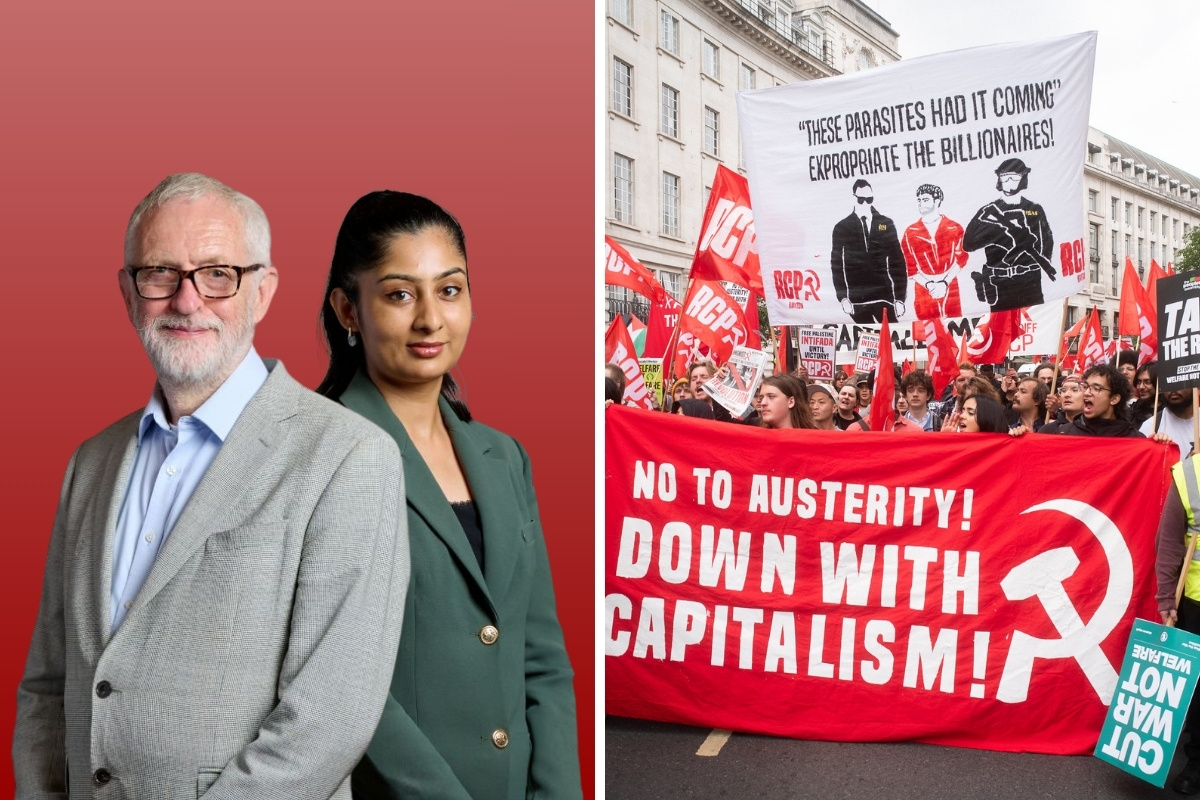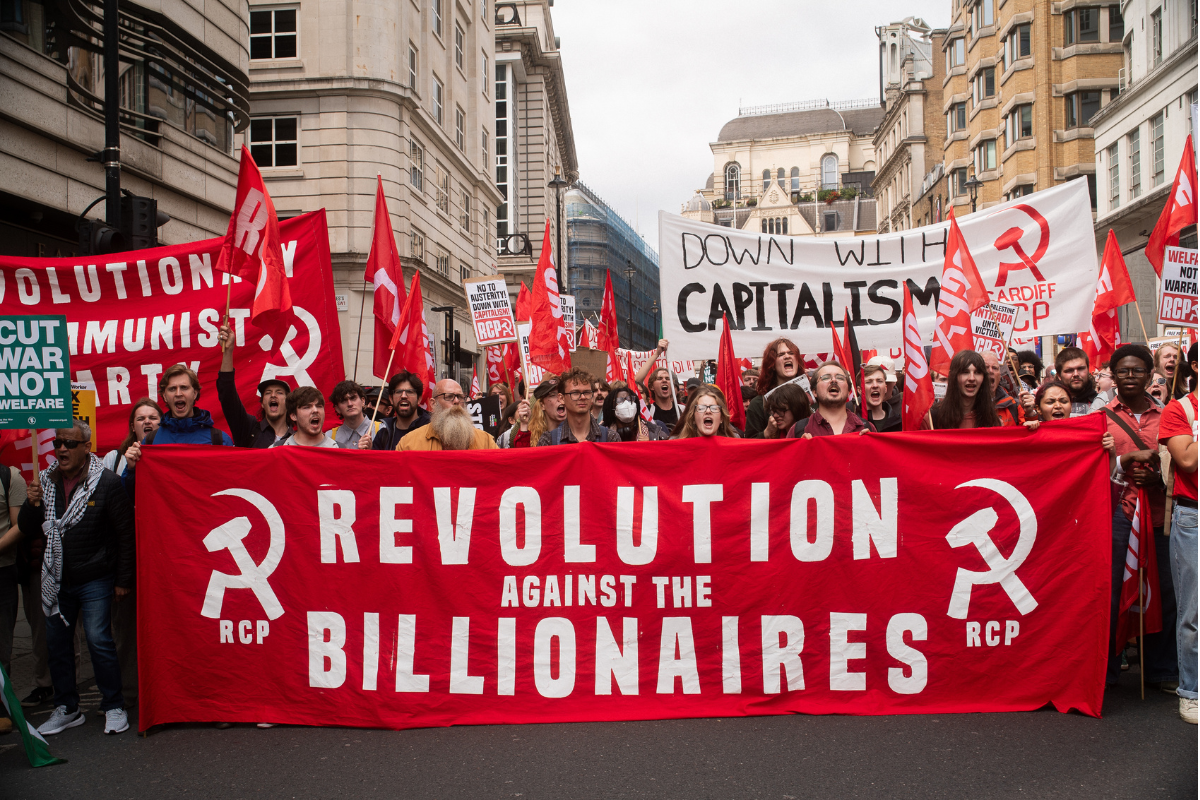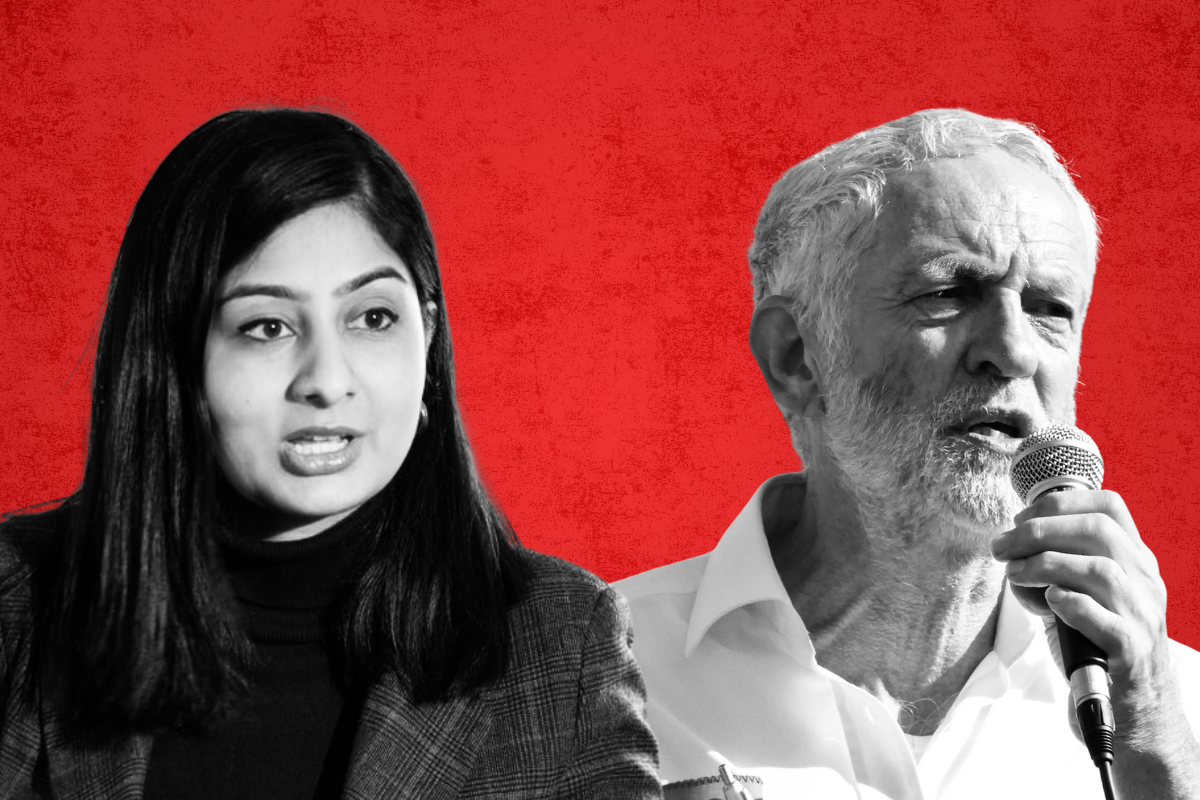In July, Jeremy Corbyn and Zarah Sultana announced the formation of a new political party. That provoked a wave of enthusiasm, with 800,000 people signing up for a left-wing alternative to Starmer’s hated Labour.
What could have been
At that time, the potential for this new party was enormous. It could have given political expression to the pro-Palestine movement and all the strike action erupting across the country.
Corbyn and Sultana could also have coordinated opposition to Trump’s state visit to the UK, and to Tommy Robinson’s ‘Unite the Kingdom’ demonstration in September.
They could have attacked the rich and the capitalist system as the cause of the crisis in Britain, instead of allowing Farage to dominate with his anti-immigrant rhetoric.
They could have raised millions in small donations, like Mamdani in New York, to hold rallies and conferences all over the country.
Starting with 800,000 people, if Corbyn and Sultana had connected with the mood that exists in Britain today, they could have been at the head of a movement of millions by now.
Unfortunately, we couldn’t be farther from that today.
What actually took place
That 800,000 in the summer has now become just 50,000 members of the new party, most of whom are not the young, fresh, radical layers that have made up the Palestine demos or the mass movements in other countries.
The new party is holding its founding conference this weekend. Sadly, this is likely to be a mess of petty squabbles. Almost no serious politics will be discussed.
There are 30 pages of organisational documents to be argued over. These are all standing orders and constitutions, which will be completely alienating to most ordinary people.
Meanwhile, there is just one solitary page of political content up for discussion. And frankly it’s weak. It says the party stands for “peace, equality, social justice, and international solidarity” – something that most Labour supporters, Lib Dems, and even a few Tories would sign up to.
View this post on Instagram
This political document proposes that the party be opposed to the “neoliberal capitalist order” – so a different kind of capitalist order would be fine? It’s opposed to “grotesque levels of inequality” – so inequality is OK as long as there’s a bit less of it?
And it’s in favour of “public and community ownership of key economic sectors and services” – vague enough that it could simply mean the renationalisation of the railways, which Labour is doing anyway.
This tepid stuff could not be more out of touch with the militant, angry, anti-establishment, anti-capitalist anger of millions of young and working-class people in Britain today.
In fact, since July, Zack Polanski has been elected leader of the Green Party and is connecting far better with this mood. His approach, though reformist in content, is more belligerent and anti-establishment than anything this new party is officially putting out.
The result is that the Greens are occupying the space to the left of Labour, polling 47 percent among under-24 year-olds, with a youth and student organisation of 40,000 members.
Greens hit their highest polling ever
amongst 18 to 24 year olds – 47%!
Reform on its lowest since March. pic.twitter.com/H90RZQbZ6S— Green Elects (@GrnElects) November 18, 2025
How has this happened?

It’s quite breathtaking how dramatically such potential has been squandered in just four months. Unfortunately, it’s Corbyn and Sultana who need to shoulder the blame.
Corbyn is out of touch with the mood of the working class and youth in Britain. From his own experience as leader of the Labour Party, and from the rise of Reform, he’s drawn pessimistic, defensive, conservative conclusions.
That’s why he’s dragged his heels over the formation of a new party. And it’s why he’s prioritised alliances with moderate independent MPs – some of whom have already distanced themselves from Your Party – and other assorted elements who have no interest in socialism.
That’s also why his political position today is actually less radical even than his election manifesto as leader of the Labour Party in 2017.
Sultana left Labour for Corbyn’s team on the strength of a backroom promise that she would be ‘co-leader’ of the new party. The backtracking on that promise has led Sultana to seek out a new base of support with which to try to seize the leadership from Corbyn.
At first she tried liberal identity politics, publicly accusing Corbyn of running a “sexist boys’ club”. Now she’s courting sectarian groups like the Socialist Workers’ Party and the Socialist Party, trying to secure their votes at the founding conference.
Consequently, she’s adopted more left language. She has declared “we’re going to take the fucking lot”, for example, regarding nationalising the banks and making the rich pay for capitalism’s crisis.
View this post on Instagram
But this vague rhetoric is combined with the most mild reformism when it comes to actual policy. She recently told the BBC her ambition is simply to be “running the government”, and that this is a “40-year project” to “deliver justice”. And while she sometimes talks about expropriation, mostly she talks of taxing the rich as a solution.
Such confusion is a reflection of left reformism, which holds no answers for the crisis of capitalism.
Corbyn and Sultana hate each other so much they are barely on speaking terms. There is even talk that Sultana will be blocked from speaking at the founding conference. With such leadership, it’s no wonder all the potential has been squandered.
The tasks of communists

A mass movement towards the formation of a new left-wing party in Britain is something communists should welcome energetically.
In July, it appeared that’s what was beginning with the launch of Your Party, and the Revolutionary Communist Party welcomed these developments. Unfortunately, over the last four months, this potential has been driven into a ditch.
Today, no-one is talking about the new party; or if they are, it’s not to say anything good. The antics of Corbyn and Sultana have isolated their party from the mass anger that exists in Britain today.
This situation won’t necessarily exist forever. We’re living through turbulent times because the crisis of capitalism is so deep. The mood of anger and anti-establishment sentiment is widespread and desperately seeking an expression.
The Conservative Party, for centuries the most successful political party in Europe, has been reduced to rubble in less than 18 months. The Labour Party is likely to go from a massive majority to a rump in the space of one parliamentary term.
Meanwhile, Reform and the Greens look likely to break apart the two-party system that has dominated British politics for the last one hundred years.
In the same vein, it can’t be ruled out that something with a bit more promise could come out of this Corbyn and Sultana mess. That could happen quite quickly, by accident, and in spite of their appalling leadership. It’s impossible to say what that would look like, which personalities would be involved, and how it would relate to other formations like the Greens.
But the details are not particularly important; they will be determined by real events, not idle speculation. All that’s clear is, right now, there’s no mass movement around Corbyn and Sultana.

What is important is to understand that left reformism in Britain will revive, in one form or another – especially as Reform strengthens and potentially comes to power, and as the crisis and radicalisation in society intensifies.
In this process, communists will fight in the battles that erupt, shoulder-to-shoulder with the working class, striving for a better world, arguing that this can ultimately only be achieved by the overthrow of the capitalist system.
Our task now is to prepare for that movement, in whatever form it takes, by strengthening the forces of communism. Today, that means steering clear of petty squabbles amongst reformists and focusing all our energy on building the Revolutionary Communist Party.






